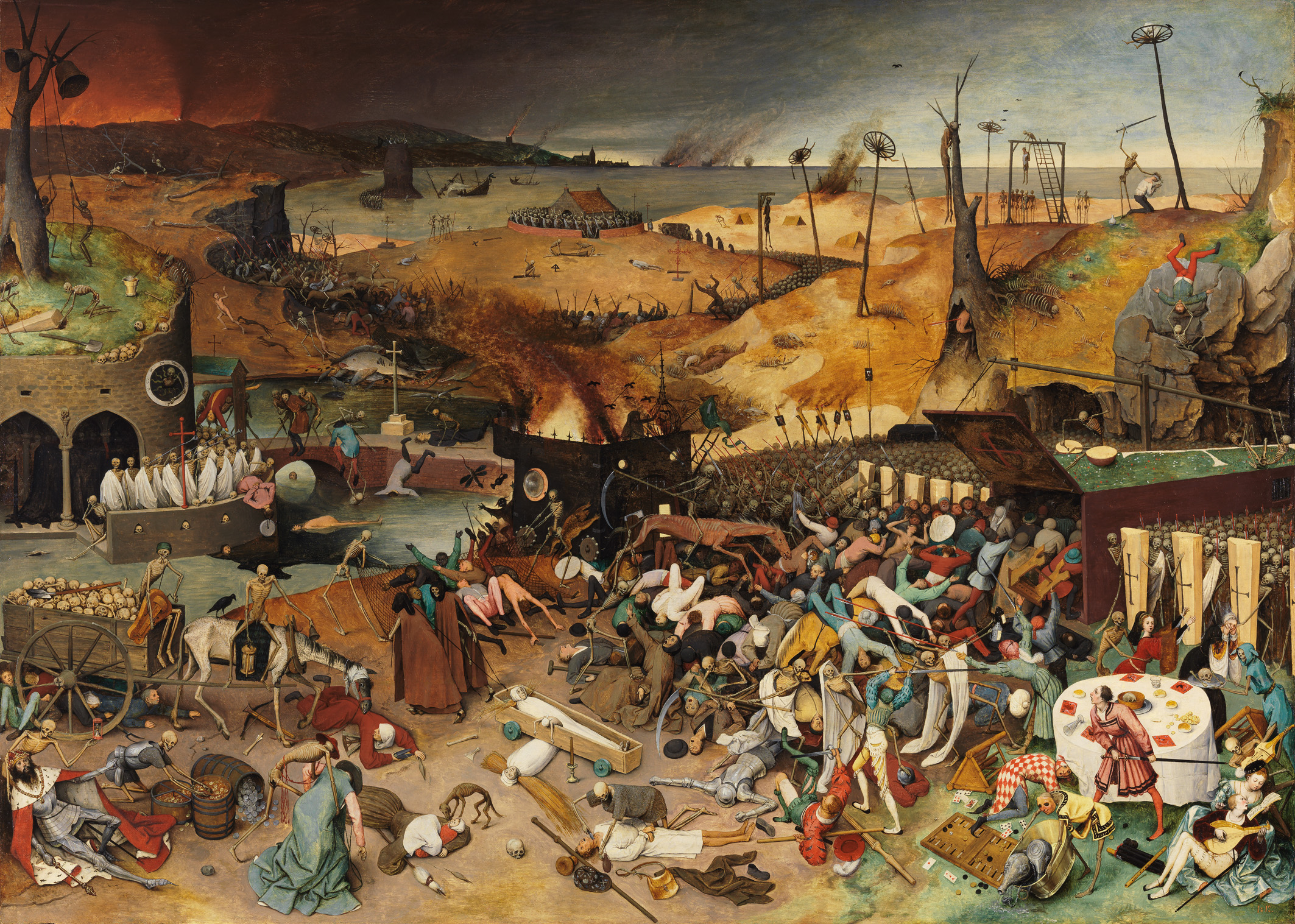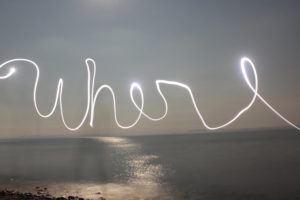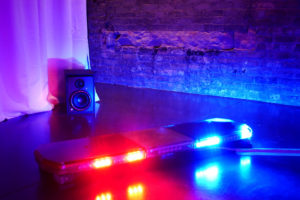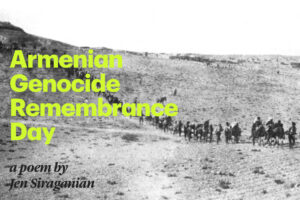
October 28, 2023
The Bringers of Violence
For all the speeches and declarations from American, Israeli, and other Western politicians and talking heads preaching morality and condemning “evil” and barbarism, it is worth noting what hundreds of thousands of demonstrators around the world (including as many as 300,000 in London alone this weekend and last) grasp: that at the root of much of this madness is colonialism. State terrorism by a different name, colonialism and its handmaid of racial capitalism rank highly among the morally repugnant ills that have shaped (or deformed) so much of our world today, plagued as it is by vast and growing inequality and environmental collapse.
Israel, much like its North American enablers, is a settler colony. It is also an apartheid state and is defined as such by major human rights organizations (Amnesty, Human Rights Watch, et al.), including leading Israeli organizations such as B’tselem. Historically, struggles against colonialism and apartheid—many of which we celebrate today without hesitation, from Ireland, to South Africa, to India, and Algeria—have involved violent resistance against the colonizer.
Frantz Fanon, who witnessed Algeria’s bloody struggle for independence, knew firsthand that colonialism, in the forms of its soldiers and policemen, “is the bringer of violence into the home and the mind of the native.”
What we are witnessing today is only more proof that the violence of the colonizer always and everywhere outweighs and overshadows the violence of the oppressed, both in scope and brutality.
And yet, nonetheless, the colonized very often resist nonviolently.
Only five years ago, massive marches were organized in Gaza to call for the return of refugees to their homes. The protestors were shot down mercilessly by live Israeli ammunition, including by snipers, killing hundreds and maiming thousands of Gazans. There are countless examples of nonviolent resistance in Palestine, from the first Intifada to the Boycott Divestment and Sanctions movement (BDS), modeled on South Africa’s successful global call in the 1980s. All of them, however, are systematically vilified and suppressed by the impossible-to-please colonizer and its backers and apologists.
When we hear generic calls for “peace,” we must recognize that it is not in fact peace that the colonizer wants, so much as he wants to be allowed to maintain in peace the unequal system which places himself above the indigenous “other.
To question the inequalities and dehumanization at the very core of colonialism, whether with the ballot, the bullhorn, or the bullet, is itself the offense. The questioning of the order of things, in other words, is the problem, not the manner of the questioning. James Baldwin wrote the following of the American context of the civil rights movement, and it is not hard to see how it applies to almost any resistance against colonization or systematized oppression:
“Try to imagine how you would feel if you woke up one morning to find the sun shining and all the stars aflame. You would be frightened because it is out of the order of nature. Any upheaval in the universe is terrifying because it so profoundly attacks one’s sense of one’s own reality. Well, the Black man has functioned in the white man’s world as a fixed star, as an immovable pillar: and as he moves out of his place, heaven and earth are shaken to their foundation.”
Needless to say, this did not start on October 7, when Palestinian guerillas broke out of the concentration camp called Gaza, and “heaven and earth [were] shaken to their foundation.” Contrary to the selective thinking and historical amnesia of western media and Israeli propagandists who (re)start the “conflict” clock whenever it suits them, this did not start when Hamas fighters escaped their ghetto and unleashed a bloody attack on the military and citizens of an apartheid regime responsible for locking them in that very ghetto in the first place. The effect of the Hamas offensive—which in addition to striking a massive blow to the vastly more powerful Israeli army, left many hundreds of Israeli civilians dead—will be felt in Israel for years to come. This was no doubt the intention and part of the grizzly calculus of those Gazans who carried out the attack—especially considering the inconceivable impact that decades of ruthless Israeli siege, sanctions, and military aggression have had on their lives, all with the international community turning a blind eye.
Again, Fanon’s words come to mind: “The town belonging to the colonized people . . . the native town, the Negro village, the medina, the reservation, is a place of ill fame, peopled by men of evil repute. They are born there, it matters little where or how; they die there, it matters not where, nor how.”
Over seventy percent of the population of Gaza are refugees. They are the descendants of the people expelled seventy-five years ago from villages, towns, and cities just across the wall of their besieged reservation; homes to which they have never been allowed to return. Like their parents and grandparents before them, Gazans remain deprived of this right (enshrined under international law) in order to make way for settlers from around the world (as long as they are Jewish, of course) to come and make it their own, changing even the place names in the process.
Gaza, in the meantime, has swelled year after year with more and more people; a place the size of Detroit now home to 2.4 million human beings packed on top of each other, warehoused behind barbed wire and cameras, and periodically bombarded by the most advanced weapons anywhere in the world.
The lucrative Israeli arms industry has essentially used Gaza as a laboratory for decades, testing weapons on a population without an air defense system, expertly using the native ghetto-dwellers’ homemade rocket fire as a justification to “mow the lawn” every couple of years while showing off their deadly toys to the highest bidders. This time around the ‘mowing’ has been especially brutal and destructive if not downright genocidal, with at least 8,000 human beings and counting wiped off the face of the earth in the last three weeks alone. Nearly half of these were children. And every single one of these children had a name, a favorite color, a silly pair of pajamas, a way of laughing at a funny uncle, or petting the neighbor’s cat.
And that is just Gaza. Millions more Palestinians languish in refugee camps or reside in the diaspora outside of historic Palestine, while roughly one million live as second class citizens (at best) inside Israel. Ten thousand Palestinians (including minors) languish in Israeli jails as political prisoners today, many without charge or recourse to counsel, and with rampant reports of torture and abuse inside. Another three million or so Palestinians live in an archipelago of bantustans in the occupied West Bank, enclosed by a serpentine apartheid wall, taller and longer than the Berlin wall by far, and surrounded not only by Israeli army checkpoints but also by a sea of over a half a million armed (often religiously-motivated) settlers. These colonists enjoy not only the protection of the Israeli army but also the use of a network of Jewish-only roads, as well as most of the water in the area, with which they fill their pools and water their suburban-style lawns while Palestinians must ration it. Israel is the square peg of 19th century colonialism jammed forcefully in the round hole of the 21st century.
Meanwhile, we are told to focus on the shiny innovations and liberal values of this apartheid state or otherwise to look away, “nothing to see here”,” and if (and when) you must look, then know that Israel is only engaged in self defense in a sea of hostile savages.
But colonialism, apartheid, and occupation are inherently offensive enterprises, are they not? Ethnic cleansing, too. Make no mistake, what is going on today in Gaza and the West Bank is simply the continuation of a project which started more than a hundred years ago when Britain gifted Palestine to European Zionists at the expense of the indigenous Palestinians. Palestinians, of course, were seen by British colonial officials as no more worthy of dignity or self determination than its millions of other subhuman subjects such as the Kenyans, Indians, Irish, and countless others whom the British crown subdued, exploited, and demeaned across their vast, extractive empire.
What is going on today must therefore be seen as a continuation of the 1936–39 Arab revolt in Palestine, which the British army crushed with the Black and Tans and many of the same “anti-terror” tactics practiced to perfection today by their disciples/descendants in the Israeli occupation forces—tactics such as collective punishment in the form of home demolitions, night raids, and so on.
What is happening today is yet another chapter of the 1948 ethnic cleansing of Palestine carried out by the nascent Israeli army, which, on the heels of massacres in towns like Deir Yasin and Tantura, went on to forcefully displace 750,000 Palestinians and destroy over 500 Palestinian villages, towns, and cities. The people of Gaza are largely the descendants of those refugees.
Palestinians are not the “human animals” or the monsters that the warlords of the apartheid state and their corporate media backers would have you believe they are. Nor are they just numbers. Though treated as such, they are not what the great Uruguayan writer Eduardo Galeano described as “the nobodies, who are not worth the bullet that kills them.” Nor are they pitiful victims inviting us to somehow feel for the first time in some time, eliciting helpless but cathartic tears on our Instagram feeds between our meals and appointments and deadlines.
The people of Gaza (as well as Nablus, Jenin, and elsewhere) are teachers and doctors and students, engineers and aunties and babysitters, musicians and footballers and breakdancers. They are preachers and fishermen, weightlifters and storekeepers, lovers and jokesters, bullshitters, birdwatchers and chainsmokers. They are painters and journalists, rappers and barbers and tailors, farmers and fathers, mothers and mechanics and translators. They are policemen and electricians, caretakers, cooks, nurses, poets, firemen, and ambulance drivers; bakers and mathematicians, fighters and surfers and writers, just like you and me and the Israelis whose lives we are told are worth more than theirs. On this point there is no room for equivocation or even discussion. As the Palestinian writer Ghassan Kanafani reminded us, we must know when calls for dialogue and “peace talks” are just euphemisms for capitulation. Only then can we avoid being drawn into what he calls “discussions between the neck and the sword.” Only then can we resist the dehumanizing effects of colonialism and racism and move towards equality in all that we do.
May those who have been killed not be taken from us in vain. May we find ways to resist and also to grow despite this stifling grief and rage. May we move and act with love towards liberation, and with fierce solidarity and urgency through these dark yet somehow hopeful times. There must be light to be harvested here. There must be.
The words of the Puerto Rican poet Aurora Levins Morales made their way to me the other day through a friend, and they seem the perfect end and the perfect beginning, so I pass them to you:
Say these words when you lie down and when you rise up,
when you go out and when you return. In times of mourning
and in times of joy. Inscribe them on your doorposts,
embroider them on your garments, tattoo them on your shoulders,
teach them to your children, your neighbors, your enemies,
recite them in your sleep, here in the cruel shadow of empire:
Another world is possible.
Ismail Khalidi is a playwright, director and screenwriter. His plays include Truth Serum Blues, Tennis in Nablus, Foot, Sabra Falling, and Dead Are My People. He also co-adapted two novels for the stage with Naomi Wallace; Ghassan Kanafani’s Returning to Haifa and Sinan Antoon’s The Corpse Washer. Khalidi’s work has been published in numerous anthologies, and he co-edited the collection Inside/Outside: Six Plays from Palestine and the Diaspora. His writing has been featured in American Theatre Magazine, The Kenyon Review, Guernica, Al Jazeera, The Dramatist and ReMezcla among others. He is a Directing Fellow and ensemble member at Pangea World Theater, and in 2023 was an artist-in-residence at Boston University’s Center on Forced Displacement. Khalidi was the guest editor of Mizna’s special “Palestine Issue” in 2019.

Toward a Free Palestine: Resources to Learn About and Act for Palestine
We are proud to present this text as part of a list of resources to take action for and learn about Palestine, as well as works by Palestinian artists, writers, activists, and cultural workers.











